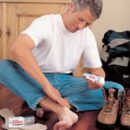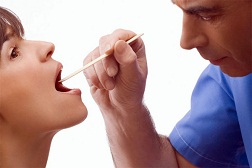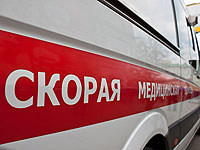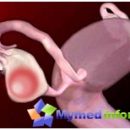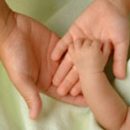How to prepare a child to surgery? How will the operation be? What will happen after surgery? Read in this article.
Content
Preoperative preparation
On the eve of the operation, the child must take a hygenic shower and change underwear. Before bedtime and in the morning until the operation, the child will be cleaned by purification. After dinner, the child should not take food and after midnight should not drink.
On the eve of the operation with the child, an anesthesiologist will get acquainted, which will introduce anesthesia. You must report in detail about all the peculiarities of your child's health, about transferred operations and anesthesia, about allergic reactions to medicines, you should also know the weight and growth of your child.
Operation
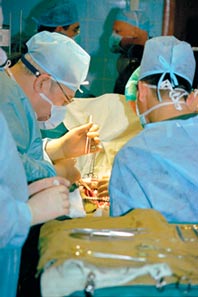 Due to the great complexity of the operations on the heart, the operating brigade includes doctors, technicians and sisters — Heart disease treatment specialists. The surgeon is directly operational, the rest with special equipment provide support for breathing, blood circulation and other vital functions of the patient's body.
Due to the great complexity of the operations on the heart, the operating brigade includes doctors, technicians and sisters — Heart disease treatment specialists. The surgeon is directly operational, the rest with special equipment provide support for breathing, blood circulation and other vital functions of the patient's body.
During operation on «Open» Heart used artificial blood circulation apparatus (AIC). With it, the blood is enriched with oxygen and pumps out all over the body, bypassing the heart and lungs. This allows you to safely perform surgical manipulations on the heart. At the same time, the surgeon sees well internal departments and heart defects. After the operation, the heart and lungs renew their work. Some operations are performed without AIKA and call them «Operations on a closed heart». To perform operations, some children require hypothermia, that is, cooling the body of a child. This allows the surgeon to completely stop the blood circulation to safely perform the operation on the heart.
After operation
After the operation, your child will fall into the separation of intensive therapy and resuscitation. Specially prepared doctors, sisters will take care of your child around the clock. Do not be afraid of a large number of equipment and tubes. They are usually necessary and used as much time as required. Here are some things you can see:
- Facilities for artificial respiration (fans);
- breathing tubes introduced into the respiratory throat (endotracheal intubation tubes);
- Tents and masks for oxygen supply;
- drainage tubes for taping blood or chest liquid after surgery;
- Several intravenous catheters and droppers for blood supply, liquid and medical preparations.
It all is an integral part of intensive care that needs children after surgery. The child will need constant intense care, perhaps you will be allowed only to a short date with him immediately after the operation. For greater comfort during this period, the child will be assigned anesthetic (sedatives) drugs. When applying these drugs, children calm down and fall asleep.
In the ward of intensive therapy and resuscitation, the child will be so much time as its condition will require, usually this is 2-4 days. About the possibility and date of translation to the common chamber you will be informed of the operating surgeon.
Further hospital service
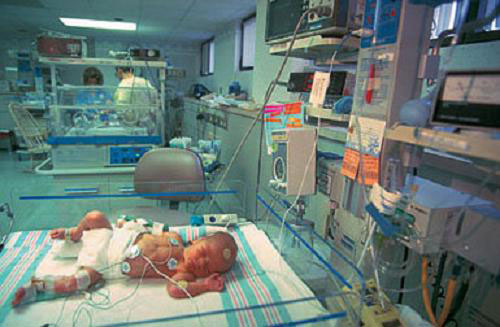 After separating the intensive therapy of your child, the usual hospital chamber awaits. There, if you are allowed to stay, your role in the navel of the child will increase significantly. Quite often, your child will receive physiotherapeutic procedures, a chest massage and perform breathing exercises (for coughing stimulation, with the aim of preventing postoperative stagnation in the lungs). This will prevent the occurrence of pulmonary complications. As the child recovers, the painful drugs will be needed to him less and less. Support the activity of the child if the doctor advises.
After separating the intensive therapy of your child, the usual hospital chamber awaits. There, if you are allowed to stay, your role in the navel of the child will increase significantly. Quite often, your child will receive physiotherapeutic procedures, a chest massage and perform breathing exercises (for coughing stimulation, with the aim of preventing postoperative stagnation in the lungs). This will prevent the occurrence of pulmonary complications. As the child recovers, the painful drugs will be needed to him less and less. Support the activity of the child if the doctor advises.
After surgery, children need high-caloride nutrition with sufficient content of vitamins and a volatile diet to prevent fluid delay in the body. The use of fluid should be monitored within reasonable limits. Child can be appointed diuretic, digoxin or antibiotics.
In some children, for several days after surgery, the temperature may increase, which may be the consequence of surgical intervention. If the heat does not fall, your doctor will conduct analyzes that will reveal its cause and will allow to begin treatment. Soon your child will feel better and will be ready for discharge. Before discharge to clarify the effect of the operation, several diagnostic research can be carried out. When your child feels better, and doctors will be satisfied with the period of recovery, time will come home. Your child has almost unpleasant sensations, and its condition will quickly improve.


